Formula
Baby's food

Infant formulas are a nutritious alternative to breast milk. Many of them are even fortified with vitamins and minerals that breast milk doesn’t contain, which breastfed babies would need to get from supplements.
Types of formula
The common infant formula types you will see out there are as follows:
Cow’s milk-based formulas: The majority of infant formulas out there are made with cow’s milk that has been modified to resemble breast milk, giving the formula the right balance of nutrients and making it easy to digest. Cow milk-based formula is good for most babies. However, babies who are allergic to the proteins in cow’s milk will need other types of infant formula.
Goat’s milk formula: In many aspects, it is quite similar to cow’s milk-based formula and, hence, not less likely to cause allergic reactions in 95-99% of babies that are allergic to cow’s milk formula. However, some babies can digest goat’s milk formula better.
Soy-based formulas: Soy-based formulas are a good option if your family follows a vegetarian diet and wants to exclude animal proteins from your child’s diet. They might also be an option for babies who are intolerant or allergic to cow’s milk formula or lactose — a carbohydrate naturally found in cow’s milk. But a baby can also be allergic to soy milk. Most soy-based formulas are suitable for babies who are 6 months old and above. There are concerns that soy milk contains phytoestrogens which could affect the reproductive system of babies. So, use soy milk only when it is recommended or prescribed by your baby’s doctor.
Protein hydrolysate formulas: The formulas in this group contain protein that has been partially or extensively broken down (hydrolyzed) into sizes smaller than those in cow’s milk and soy-based formulas. These formulas are meant for babies who don’t tolerate cow’s milk or soy-based formulas. The extensively hydrolyzed ones are specifically made for babies who have a cow milk protein allergy. Additionally, there are specialized formulas for premature infants and babies who have specific medical conditions. Check with your child’s doctor if that’s a suitable option for your baby.
Things to remember when preparing formula feeds
- Wash your hands before handling formula and carefully follow any mixing and storage instructions
- Store any formula you prepare in advance in the refrigerator
- Never warm up the formula in a microwave, as it may heat the feed unevenly and burn your baby’s mouth
- To warm refrigerated or frozen milk, place the container in warm water and rotate it frequently
- Make sure that all bottles, nipples, and other utensils you use to prepare formula or feed your baby are clean
- Do not add sugar, cereal, or anything else to your baby’s formula
- Ensure you follow the manufacturer’s instructions as to the amount of water and powder to use
Verified:
Dr. Piyawut Kreetapirom, MD. license no. 41578 (22 July 2021)
Sources:
- Infant formula: Your questions answered, Mayoclinic
- Randomized, double-blind comparison of growth in infants receiving goat milk formula versus cow milk infant formula
- Nutritional and Medicinal Superiority of Goat Milk over Cow Milk in Infants
- Types of formula, NHS
- Drinks and cups for babies and young children, NHS



